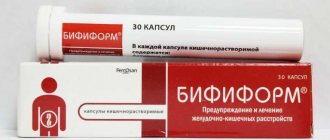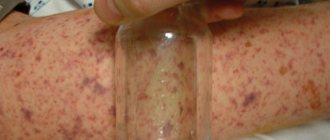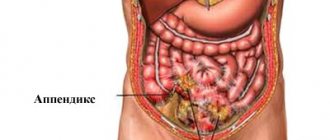Inflammation of the appendix is a common pathology that usually takes patients by surprise. The question that worries all patients in the surgical department without exception is: how long do they stay in the hospital after appendicitis removal?
For many, this means falling out of the usual rhythm of life and adjusting existing plans. An acute question arises: where to put pets and children during treatment.
And also the need to be careful and attentive to your health in the next couple of months. If the operation itself does not last long, then the length of stay in the hospital may be prolonged for various reasons. We will find out exactly which one from this article.
What is inflammation of the appendix
An attack of appendicitis is an inflammation of the appendage of the cecum, which is called the appendix. It occurs in an acute form, with rapidly increasing symptoms and deterioration of well-being.
Causes:
- infectious diseases (typhoid fever, tonsillitis);
- diseases of the endocrine system;
- constipation;
- caries;
- excessive consumption of seeds, ingestion of chewing gum and seeds of fruits and berries;
- mechanical injuries;
- helminthiases.
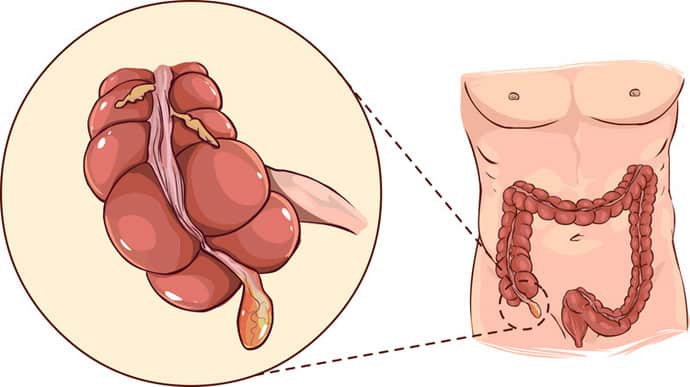
Symptoms:
- dull aching pain in the navel or hypochondrium, which begins to rapidly increase;
- nausea;
- vomit;
- dry mouth;
- weakness;
- increase in body temperature up to 380C;
- the so-called “acute abdomen”, when due to pain it is impossible to palpate the abdominal area.

If the above symptoms occur, the patient must go to the hospital as soon as possible for examination, since in the absence of surgical intervention the appendix becomes suppurated and peritonitis occurs. In severe cases, pus pours into the abdominal cavity, which leads to peritonitis. In this case, the probability of death is high.
Operation duration
The duration of appendectomy is an individual indicator that cannot be predicted in advance. In each case, this period is different and can vary from 30 minutes to several hours.
The timing of surgery depends on many factors. First of all, the type of operation is taken into account - laparoscopic or abdominal.
A laparoscopic appendectomy is done using special equipment through small incisions in the patient's skin. If there are no problems, the duration of the operation does not exceed 30-40 minutes. This is the preferred method of intervention because it is less traumatic, has minimal risk of complications, and has a quick recovery.
During abdominal surgery, the doctor makes a layer-by-layer incision of soft tissue, stops bleeding from small damaged vessels, evaluates the damaged appendage and removes it. Catarrhal appendicitis is removed in 40-60 minutes, since the inflammatory process is limited.
If the patient does not go to a medical institution in a timely manner, purulent or phlegmonous appendicitis may develop. In this case, you cannot simply remove the process. It is necessary to examine nearby organs to ensure that the inflammatory process does not transfer to them. After all, this threatens the occurrence of complications in the postoperative period. The duration increases accordingly.
The tactics of surgical intervention change dramatically with perforation of the appendix and the development of peritonitis. In this case, it is necessary not only to remove the appendage, but also to eliminate the consequences of its contents entering the abdominal cavity - rinse it and drain it. This requires quite a lot of time, and surgery can take 2-3 hours.
In case of appendicitis with an atypical location of the appendix, the duration of the operation also increases. After all, the surgeon must “find” it - it can be located between the intestinal loops, near the kidney, behind the liver, and even on the left side. Such cases are rare, but they do happen. This requires special attention and approach, and therefore time.
The duration of surgical intervention increases in the presence of concomitant pathologies. For example, numerous adhesions between loops of intestine make access to the appendix difficult, and the doctor may decide on the need to dissect them.
The occurrence of complications cannot be ruled out. In this case, the patient's age plays a major role. Elderly people have a variety of diseases of the cardiovascular system, and when anesthesia is administered, there is an increased load on the main organ. In case of failure of the heart, resuscitation measures are carried out first and only after that the operation is completed.
Diagnosis and treatment
If inflammation of the appendix is suspected, the patient is prescribed the following laboratory and instrumental studies:
- Analysis of urine;
- blood analysis;
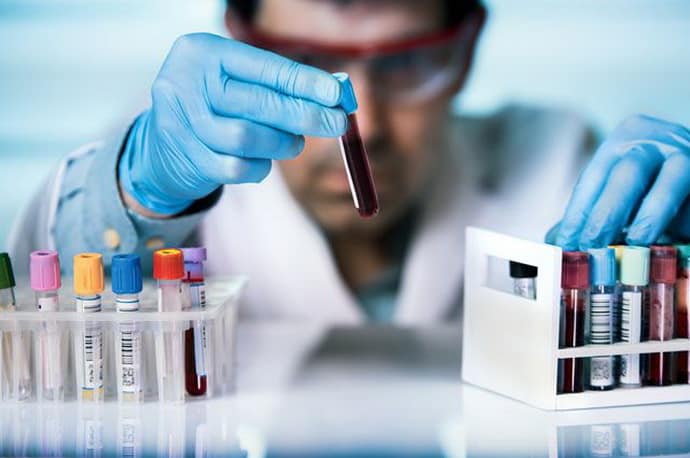
- Ultrasound of the abdominal cavity;
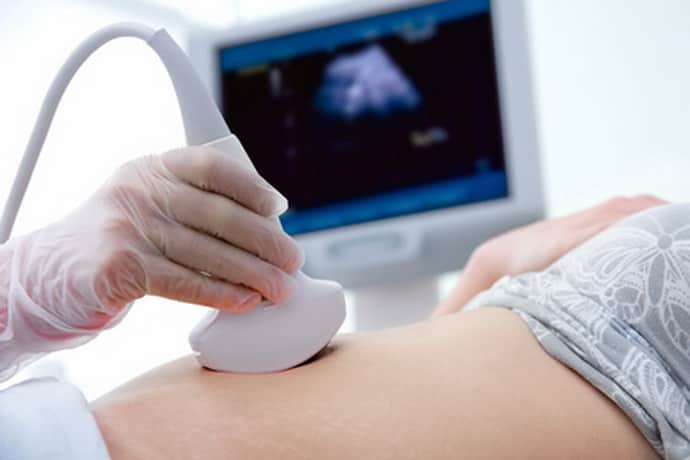
- CT scan;
- MRI.
The only treatment is surgical removal of the inflamed appendix. There are 2 ways to carry out this operation:
- Classic operation. In this case, an incision is made, up to 10 cm long, and after removing the appendix, sutures are applied. This type of surgical intervention is practiced for purulent appendicitis in order to cleanse the abdominal cavity of residual pus. In this case, the recovery period lasts up to 2 weeks.

- Laparoscopy. Three small incisions are made on the patient's abdomen, through which an endoscope and a surgical instrument are inserted to remove the appendix. The operation itself lasts about half an hour, the recovery period takes 5 – 7 days.
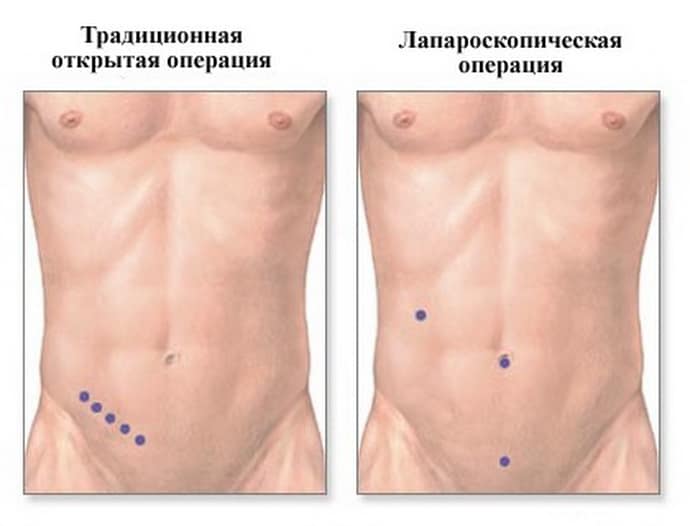
After discharge from the hospital, the patient must go to the clinic at his place of residence. Sick leave after appendicitis is given for a week for laparoscopy, and for up to two weeks for classical surgery.
Payment order

Documents of incapacity for work, which are issued on the basis of operations to remove appendicitis, are paid in accordance with the general procedure in accordance with the requirements of the law. Thus, the contents of the document indicate the entire day of treatment, as well as the days of extension that will be paid. Sick leave is given in the administrative office against signature only upon presentation of a passport.
Having received the document in hand, it must be submitted to the employer within a maximum of 6 months, who will launch a mechanism for compensating due payments. The first three days of treatment are paid for by the employer, and the rest of the period is compensated by the Social Insurance Fund. As a rule, already on the first salary, all money is transferred to the patient’s account.
Appendicitis is one of the ailments that, although requiring surgery, is considered relatively simple. Therefore, sick leave usually lasts less than three weeks. The exception is all cases of complications.
Factors determining the duration of rehabilitation after appendicitis
However, how long to stay in the hospital with appendicitis, and, as a result, sick leave after appendicitis, depend not only on the type of surgical intervention performed, but also on the presence or absence of complications. The most common pathologies that delay the process of recovery and discharge include:
- Inflammation of the external or internal seam. The cause may be constant external influences on the suture area, for example, sleeping on the stomach, lifting heavy objects, or trauma to the drainage tube. If this pathology occurs, thorough local treatment of the sutures is performed, and the patient is prescribed antibiotics. Until the symptoms subside, the patient will have to stay in the hospital.
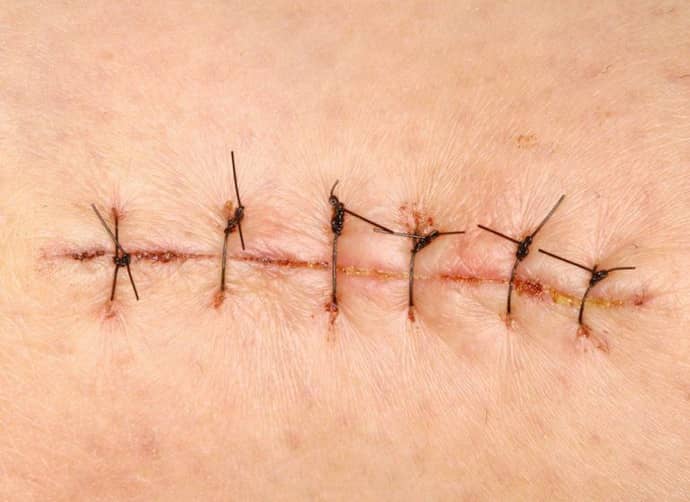
- Repeated suppuration. If the suture suppurates, the wound is opened and disinfected, then the suture is applied again. If suppuration occurs in an already operated area of the intestine, repeat surgery is performed. This pathology can significantly lengthen the time of hospital stay.
- Formation of adhesions. A pathological process that occurs when a suture fuses with internal organs. It threatens to disrupt the functioning of the gastrointestinal tract; there is a high probability of partial or complete intestinal obstruction. High risk of death. If adhesions occur, repeated surgery is performed. The length of hospital stay depends on the complexity and duration of subsequent rehabilitation.
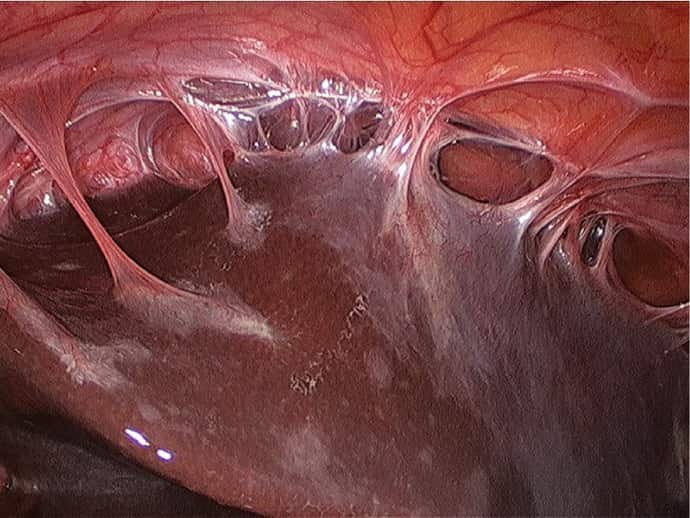
- Herniation. Appears in a place where the seam has not completely healed. The gastrointestinal tract and blood vessels begin to move into the resulting cavity. The danger is a strangulated hernia; in this case, blood circulation in the pinched organ slows down and its death may begin. Treatment is surgery; recovery time varies from person to person.
- The occurrence of peritonitis. The most dangerous complication, but quite rare. It occurs when the appendix ruptures, when the purulent contents of the appendix pour into the abdominal cavity. During the operation, the peritoneum is thoroughly cleaned and washed with antiseptics. If inflammation appears after surgery, then the abdominal cavity is re-opened for cleaning and disinfection. In this case, the hospital stay may be lengthy.
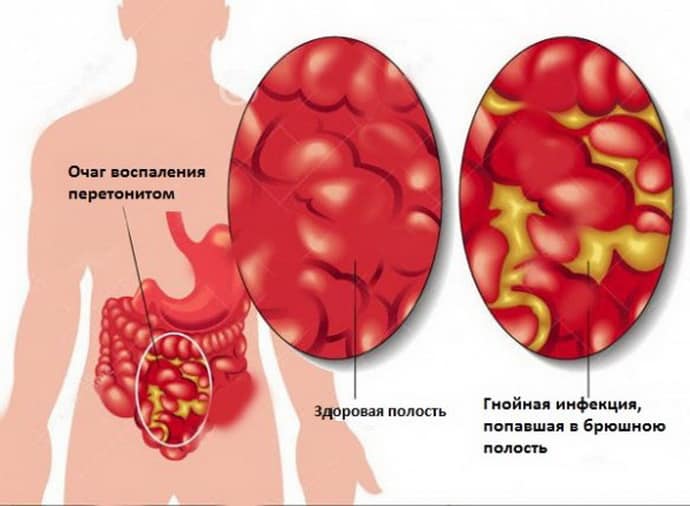
Tips and tricks
To ensure recovery after appendicitis removal occurs as quickly as possible, you must adhere to the following recommendations:
- Maintain bed rest, which does not mean complete immobility. 12 hours after surgery, it is recommended to change your body position in bed. A couple of days after the operation, simple therapeutic exercises begin in a lying position under the supervision of a doctor. All these measures help to minimize the occurrence of adhesions.
- Stick to a healthy diet. This is done in order to prevent overflow of the intestines, and thereby prevent the formation of internal adhesions. Meals should consist of low-fat soups and cream soups with chicken or vegetable broth, low-fat boiled meats and fish, low-fat fermented milk products, and viscous porridges. Spicy, fatty and fried foods, soda, thick rich broths and foods that increase the load on the gastrointestinal tract are prohibited.
- Limiting physical activity and wearing a bandage. Excessive physical activity can cause incomplete fusion of the suture, and, as a result, the occurrence of a hernia. Although exercise therapy is indicated for the patient, increased physical activity and heavy lifting remain prohibited.

How many days to stay in the hospital with appendicitis depends not only on how successful the operation was, but also on the patient’s compliance with the rules of postoperative rehabilitation.
Sick leave after appendicitis is issued for up to two weeks. If during this time the patient’s condition has not improved, then a medical commission is assembled, which decides on the issue of extending the list of incapacity for work. In total, you can be on sick leave for up to 12 months, but such cases practically never occur.
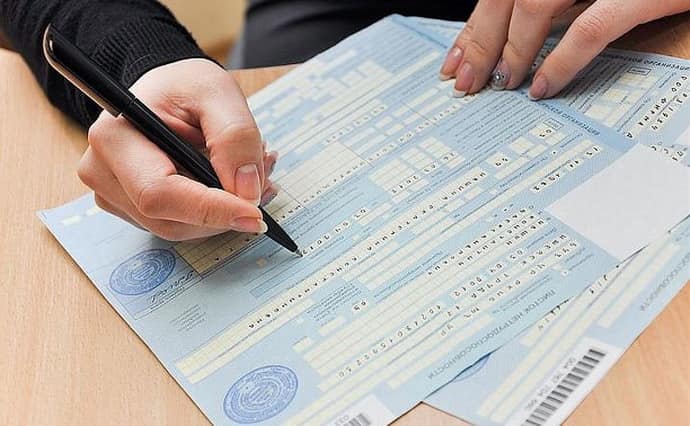
How many days do you get sick leave and how long do you stay in the hospital after appendicitis removal?
Appendicitis is more common in school-aged children, but can also occur in adults.
The disease limits the ability to work, and the necessary surgical intervention requires sick leave for both adults undergoing surgery and those caring for their child.
How many days of sick leave are given after appendicitis and what patients should expect - read the article.
Appendix removal
Appendicitis is an acute inflammation of the appendix of the dome of the cecum , requiring emergency surgery - appendectomy.
Surgery for appendicitis is common; the disease is rarely complicated by a secondary infectious process if treated in a timely manner. Hospital stay does not exceed 7-10 days.
How long do you stay in the hospital after surgery?
Patients are interested in the question of how long they stay in the hospital after appendicitis is removed.
The period of inpatient stay depends on many factors : the severity of the disease, the type of surgical intervention, the addition of complications (including postoperative ones), the nature of the sick leave (caring for a minor child). It is important to take into account the status of an adult or a child: special periods of sick leave are provided for in case of disability.
Depending on the type of intervention
The stay in the hospital also depends on the type of operation performed and the choice of intervention tactics :
- drug antibacterial therapy for chronic appendicitis - no more than five days;
- laparoscopic method through punctures of the abdominal cavity - 7-10 days, including the postoperative period;
- abdominal surgery - up to 30 days from the moment of hospitalization.
The nature of the work activity of an adult patient who has undergone an appendectomy is of no small importance. The period of sick leave can be increased in cases of work associated with dangerous and harmful production, increased physical activity, and unfavorable working conditions (in the cold, in the heat, in the open air).
postoperative period without complications
patients stay in the hospital after surgery with a favorable recovery for up to seven days ; after the stitches are removed (if necessary), they are discharged on the seventh day, and then the sick leave is closed.
if a parent is caring for a hospitalized child under 3-4 years of age, sick leave begins from the moment of hospitalization and ends with discharge from the hospital - 5-7 days.
For the parent of a disabled child, leave to care for him, regardless of age, can be increased to 30 days. adults are discharged on days 5-7, at which time the sick leave is closed (plus or minus three days).
with complications
in case of complications after surgery, the hospital period varies from 15 to 30 days , however, according to the decision of the medical commission on the need for longer treatment (in a hospital or outpatient setting), it can be extended up to a year.
Parents of children under seven years of age for care after a complicated operation and during a long stay in hospital require sick leave until the child’s condition improves and is discharged.
children over 14 years old can be in the hospital without parents and do not need constant care (by decision of the head of the department), so sick leave is issued for 3-5 days. Due to the child's disability, one of the parents can be on carer's leave until his full recovery.
How long does sick leave last for adult patients who have had appendicitis with complications? under general conditions it ranges from 15 to 30 days . the issuance of certificates of temporary disability is regulated by orders of the Ministry of Health of the Russian Federation and the Ministry of Labor of the Russian Federation.
recovery period
When are you discharged from the hospital after appendicitis? The recovery period after surgery depends on the technique used to perform it . If the operation is abdominal, then the total stay in the hospital can reach 15 days. With successful treatment, the time spent there rarely exceeds seven days.
In the first days after surgery
In the early postoperative period, bed rest is indicated ; it is necessary to monitor stool and general condition. Antibiotic therapy is immediately prescribed to avoid secondary infectious complications.
early rehabilitation also includes:
- gentle nutrition (slimy porridges, soups, pureed foods);
- protective regime;
- dressings;
- taking medications.
On the first day, medical personnel and relatives look after the patients; they monitor the recovery from anesthesia and the patient’s sensations. If he feels normal and there are no complications, he can get up the next day.
early rehabilitation without complications takes 2-3 days . in the following days the person is able to take care of himself.
for complications
any surgical intervention is associated with potential risks, even if the patient is in perfect health. There are complications that arise unexpectedly during the operation.
appendectomy may be complicated:
- bleeding;
- hypoxia after anesthesia;
- violation of defecation, urination;
- paresis of the intestines, ureters and bladder.
there is a risk of developing fistulas, thromboembolism, and sepsis due to inadequate care of the postoperative wound. Appendicitis itself can be complicated by peritonitis and sepsis.
attention! any complications complicate recovery; the duration of hospital stay can reach a month. Usually this period is enough for the patient to recover.
after discharge
after discharge from the hospital with improvement, the patient is registered with a dispensary with recommendations. Usually, after seven days in the hospital, the patient remains at home for another 5-7 days according to medical indications. In this case, sick leave is extended until the date established by the attending physician.
shown at home:
- treatment of the wound surface with antiseptics;
- if the stitches are not removed, apply dressings twice a day;
- taking antibiotics according to the prescribed therapy regimen.
At home, it is recommended to monitor the frequency of stool and urination, avoid hot baths and forceful exercise. The patient is discharged by a surgeon at the clinic at the place of residence.
when is sick leave extended?
How many days later will they be discharged if there are indications for extending the certificate of incapacity for work? Sick leave can be extended if the clinical situation meets the following requirements :
- complications during and after surgery, including rehabilitation (peritonitis, sepsis, abscesses, adhesions, thrombosis);
- an adult patient or child has disabled status;
- difficult recovery, impaired mobility after surgery.
To extend the certificate of incapacity for work, it is recommended to contact the head of the surgical department or clinic at your place of residence. The appeal must be oral or declarative in nature in accordance with the procedures of the medical institution.
The average extension period reaches 30 days , however, in special cases, sick leave can be extended up to 12 months.
Attention! In case of prolonged sick leave against the background of persistent functional disorders, you can contact the ITU to assign a disability group. If the issue is resolved positively, the patient acquires the status of a disabled person and receives appropriate benefits.
Registration procedure
The registration of sick leave is carried out by the senior nurse of the specialized department, the head of the department or a surgeon in the clinic at the place of residence. The patient does not participate in filling out the form.
It specifies the causes of disability using special unified codes. Appendicitis corresponds to code 001 - it indicates a disease that makes it impossible to attend the workplace.
After discharge and closing of the sick leave on time, the patient takes the form and gives it to the employer, who fills out the necessary information related to calculations and information about the place of work. The sick leave code for 3-NDFL and the tax service is 2300.
The issuance of certificates of temporary incapacity for work is regulated
Source: https://gastrot.ru/kishechnik/bolnichnyj-posle-udaleniya-appenditsita
Prevention
To avoid, or at least minimize the risk of appendicitis, you should follow simple rules:
- if you suspect an infectious disease, immediately seek medical help;
- prevent constipation;
- Do light exercise regularly;
- adhere to the principles of healthy eating;
- Avoid eating sunflower seeds with the peel, and try not to swallow grape seeds and chewing gum.

Taking these preventive measures can protect you from inflammation of the appendix and an unplanned visit to the hospital.
The length of hospital stay depends not only on the type of surgery performed, but also on the success of rehabilitation measures. It is important to follow all the instructions of your doctor to avoid delaying the recovery process.

